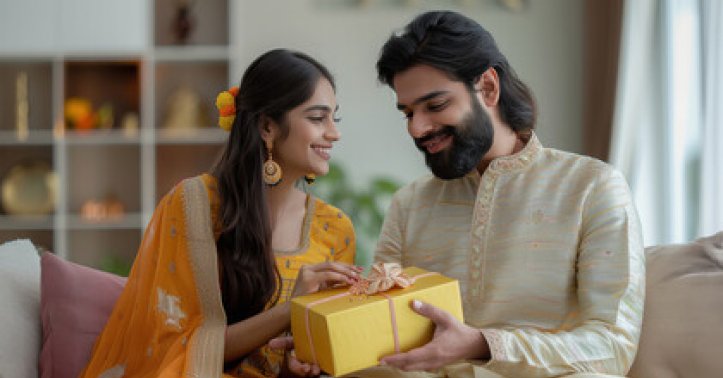
Bhai Dooj the festival of sibilings
Siblings are always important to us as we can count on them always
Bhai Dooj is significant as it is about the relationship between brothers and sisters. It occurs on the second day after Diwali and is observed mainly in India and Nepal. The festival shares similarities with Raksha Bandhan but has unique rituals and significance. The relationship between siblings has a lot of significance in Hinduism so people even travel across town to celebrate it with family.
Key Significance of Bhai Dooj:
-
Celebration of Sibling Bonds: Bhai Dooj honors the love and commitment between siblings, with sisters praying for the well-being, prosperity, and longevity of their brothers, while brothers vow to protect and support their sisters. This reinforces the familial bond, making it an occasion to express affection and gratitude.
-
Cultural and Mythological Roots: Bhai Dooj is rooted in Hindu mythology. According to one popular story, the sister of Yama, the God of death, put a tilak on his forehead for his protection. The significance is that he that is the brother be protected from untimely death. This legend underscores the themes of love, protection, and familial duty.
-
Rituals and Traditions: On Bhai Dooj, sisters perform an aarti (ritual of prayer and light) for their brothers and apply a tika on their foreheads. The brothers give gifts and blessings to their sisters. The ritual fosters a sense of mutual responsibility and respect, with food, sweets, and symbolic exchanges of gifts strengthening familial bonds.
-
Social Importance: Bhai Dooj provides an opportunity for families to gather, bond, and celebrate, often bringing together siblings who may live apart due to work or other reasons.
Overall, Bhai Dooj is a joyful occasion that highlights the significance of sibling relationships within family and society, reflecting values of care, commitment, and unity. Let us celebrate family values this Bhai Dooj and always.
By Jamuna Rangachari








